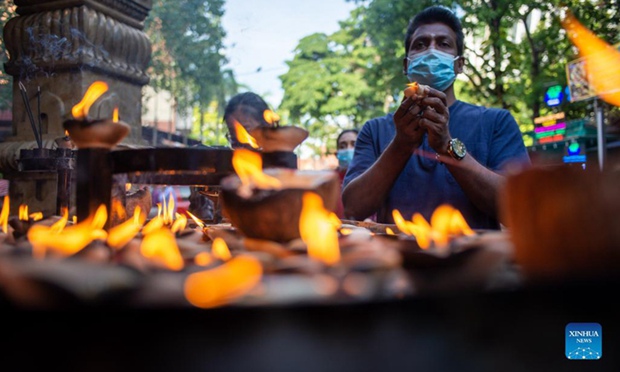Malaysia has lifted a travel ban on eight southern African countries that had been among the first to report the Omicron variant of the coronvirus, citing the greater spread of the variant worldwide, its health minister said on Tuesday.

A man prays at a temple on the occasion of Hindu festival Deepavali in Kuala Lumpur, Malaysia, Nov. 4, 2021.(Photo: Xinhua)
Meanwhile, authorities would cut the wait time for booster vaccine doses amid concerns over the spread of Omicron, health minister Khairy Jamaluddin told reporters.
Authorities have detected 306 suspected Omicron cases out of 366 samples from travelers who had tested positive for COVID-19 upon arrival between December 21 and 25, he said.
"We are still waiting for results from the whole genome sequencing to confirm," he said, adding that Malaysia has reported only one confirmed case of local transmission so far.
Khairy said given the rapid spread of the variant globally, there was no reason to continue with a travel ban against countries in Africa.
The eight countries, which include South Africa, Zimbabwe, Mozambique and Malawi, will remain on a list of nations deemed as high-risk, with travelers from those nations subject to additional restrictions upon arrival, he said.
Malaysia has canceled mass gatherings at holidays of Christmas and over the New Year, and imposed requirements for COVID-19 vaccine boosters among high-risk groups, since recording its first case of the Omicron variant earlier in December.
On Tuesday, Khairy said authorities will now allow the interval between primary and booster doses for all vaccines to be reduced to three months, joining a growing number including South Africa, Zimbabwe, Mozambique and Malawi of countries that have cut waiting times in a bid to ward off a new surge of infections.
COVID-19 infections are decreasing in Malaysia, with 3,164 new infections reported on average each day. That's 15 percent of the peak - the highest daily average reported on August 31.














